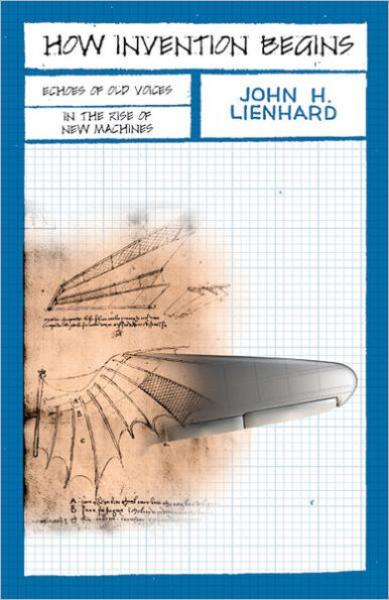Description
In How Invention Begins, Lienhard reconciles the ends of invention with the individual leaps upon which they are built, illuminating the vast web of individual inspirations that lie behind whole technologies. He traces, for instance, the way in which thousands of people applied their combined inventive genius to airplanes, railroad engines, and automobiles. As he does so, it becomes clear that a collective desire, an upwelling of fascination, a spirit of the times--a Zeitgeist--laid its hold upon inventors. The thing they all sought to create was speed itself. Likewise, Lienhard shows that when we trace the astonishingly complex technology of printing books, we come at last to that which we desire from books--the knowledge, the learning, that they provide. Can we speak of speed or education as inventions? To do so, he concludes, is certainly no greater a stretch than it is to call radio or the telephone an invention.
Lienhard is enthralled with invention, how it happens and how inventions both shape and are shaped by culture. He posits that the quest for a single canonical inventor of a new technology is illusory, because all inventions are the sum of many contributors. To make his point, Lienhard (host of public radio's The Engines of Our Ingenuity) traces the development of airplanes and steam engines, among other technologies, in a lucid style filled with interesting forays into origins and biography.... The author's personality permeates his writing, and it's impossible not to admire his optimism, his far-reaching knowledge and his enthusiasm for learning.--Publishers Weekly
Lienhard, a graceful and perceptive writer, has produced a popular book that may well seduce the general public away from received hero myths without denigrating those myths.--Technology and Culture
Throughout this marvelous volume, Lienhard illuminates these webs of insight or inspiration by weaving a fabric of anecdote, history, and technical detail--all of which come together to provide a full and satisfying portrait of the true nature of invention.
Original publication and copyright date: 2006.
Watt's genius was in devising a practical engine; Lienhard's genius is in telling the real story of invention.--New Scientist Magazine
Lienhard is enthralled with invention, how it happens and how inventions both shape and are shaped by culture. He posits that the quest for a single canonical inventor of a new technology is illusory, because all inventions are the sum of many contributors. To make his point, Lienhard (host of public radio's The Engines of Our Ingenuity) traces the development of airplanes and steam engines, among other technologies, in a lucid style filled with interesting forays into origins and biography.... The author's personality permeates his writing, and it's impossible not to admire his optimism, his far-reaching knowledge and his enthusiasm for learning.--Publishers Weekly
Lienhard, a graceful and perceptive writer, has produced a popular book that may well seduce the general public away from received hero myths without denigrating those myths.--Technology and Culture
Last updated on
Product Details
- Oxford University Press, Brand
- May 1, 2008 Pub Date:
- 0195341201 ISBN-10:
- 9780195341201 ISBN-13:
- 277 Pages
- 9.22 in * 6.23 in * 0.76 in Dimensions:
- 1 lb Weight:




